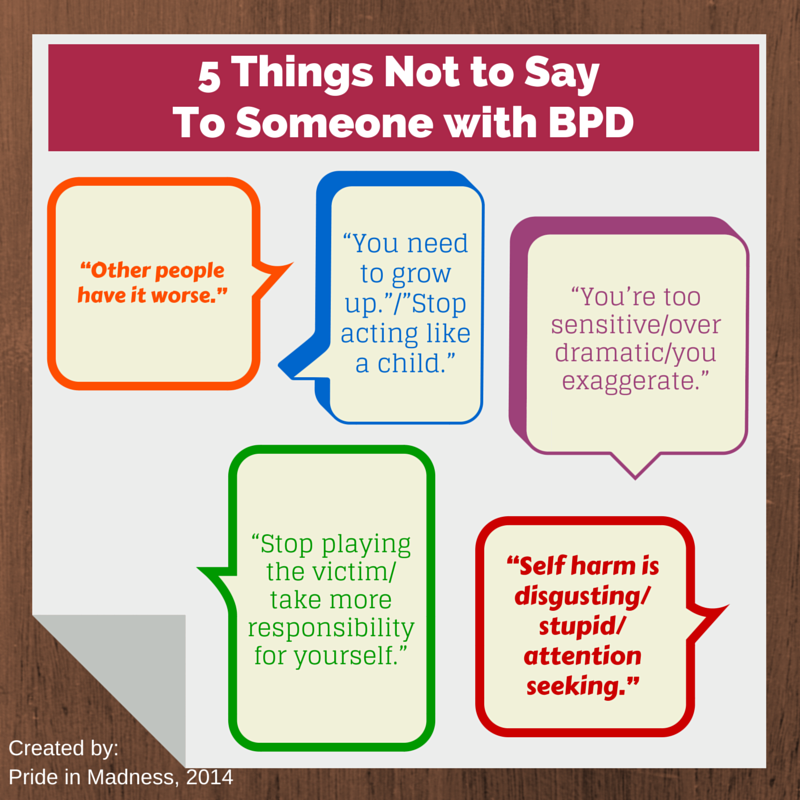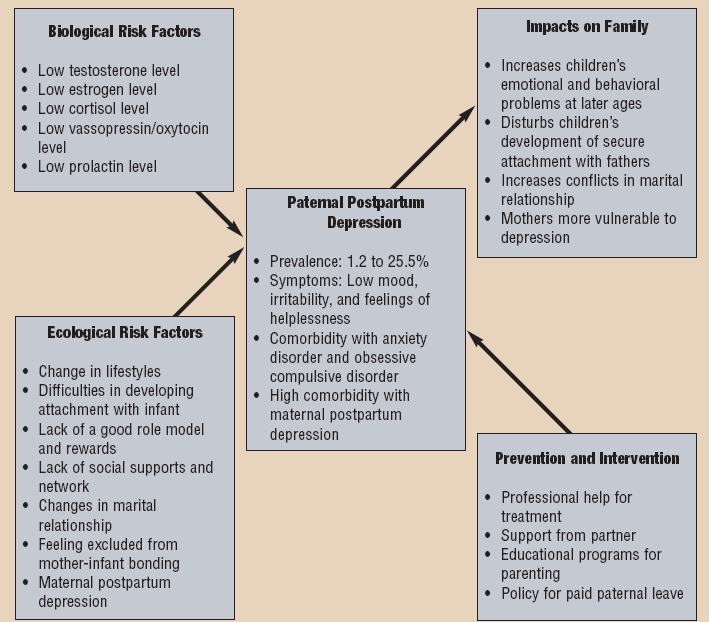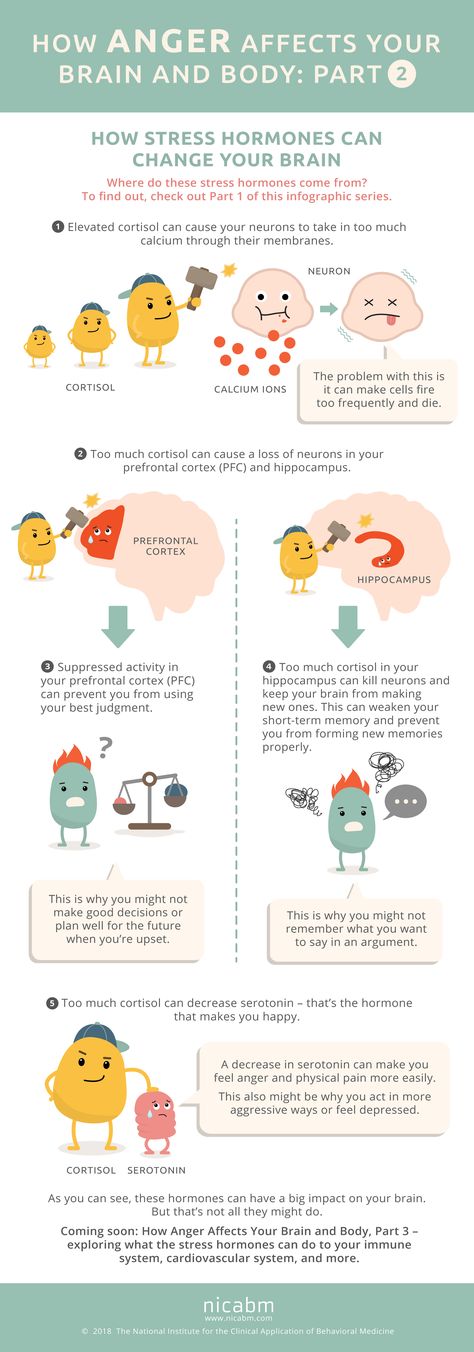What is eq and iq
How They Differ, Which Is More Important?
Human intelligence is marvelously complex. For centuries, researchers and philosophers have attempted to define it. In the modern era, researchers have relied on Intelligence Quotient (IQ) tests to measure both what people know and how quickly they can solve problems using reasoning.
But IQ tests alone don’t necessarily account for the full range of your thinking abilities. IQ tests don’t always predict success in school, life, or business, either.
So, in recent decades, researchers have expanded the definition of intelligence to include a wider set of skills.
In the last 20 years, the concept of Emotional Intelligence (EI) has emerged as a way to describe another set of thinking skills. Emotional intelligence refers to your ability to recognize and regulate emotion, and to use social awareness in problem-solving.
Together, IQ tests and EQ tests may give researchers a fuller picture of human intelligence.
In this article, we’ll take a closer look at both forms of intelligence, and whether one is more important than the other.
Your IQ usually refers to your intellectual ability. Some of the most common elements of your IQ include your ability to:
- use logic to solve problems
- plan and strategize
- understand abstract ideas
- learn and adapt to change
- grasp and use language
Your emotional quotient (EQ) generally refers to your ability to sense emotion in yourself and in other people. It also refers to how you use that awareness to guide your behavior. In general, if you have a high EQ, you may find it easier to:
- identify emotions in yourself and others
- empathize with other people
- adapt your feelings and behavior to different situations
- control your impulses
- withstand temptations and delay gratification
- resolve conflicts with others
- communicate effectively
There’s a lot of debate about the accuracy of IQ and EQ measurements.
Many factors can influence outcomes on tests, which leads some people to question whether these tests really measure innate abilities.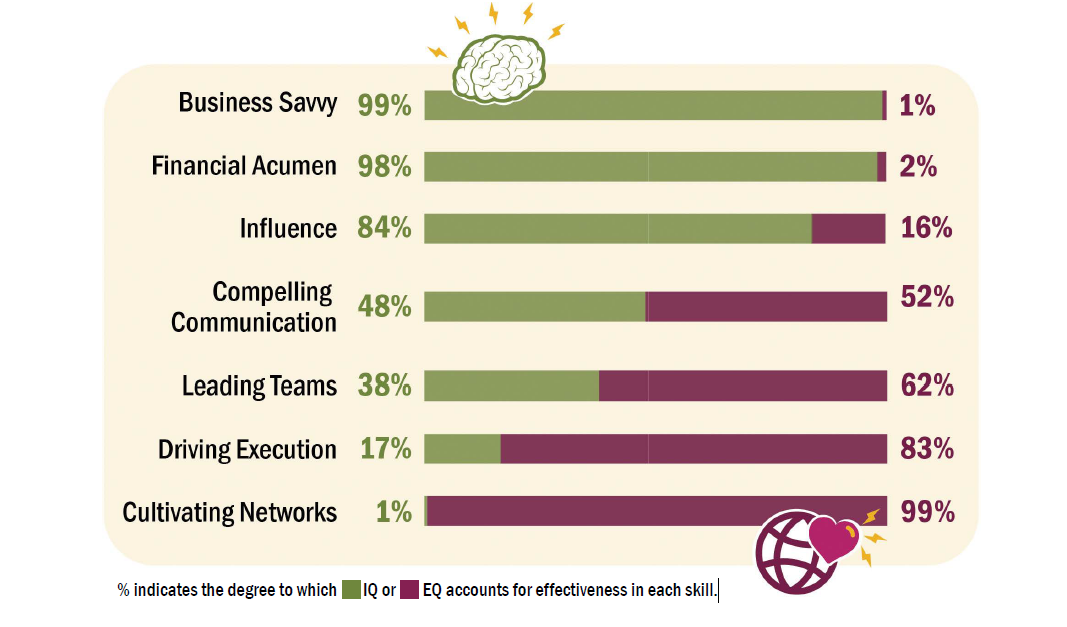 For instance, the following factors may all have a bearing on test results:
For instance, the following factors may all have a bearing on test results:
- economic status
- social inequalities
- access to education
- childhood nutrition
- childhood trauma
- other environmental factors
The most commonly used IQ tests include:
- the Stanford-Binet Intelligence Scale
- the Woodcock Johnson III Tests of Cognitive Abilities
- the Wechsler Adult Intelligence Scale
- the Wechsler Individual Achievement Test
These IQ tests typically measure two different intelligence abilities, known as:
- Crystallized intelligence. This type of intelligence is based on your verbal ability and knowledge and usually improves as you get older.
- Fluid intelligence. This is your ability to reason, think abstractly, and solve problems without pre-existing knowledge.
Other IQ tests, such as the Universal Nonverbal Intelligence and Raven’s Progressive Matrices, attempt to measure intelligence without taking verbal ability into account.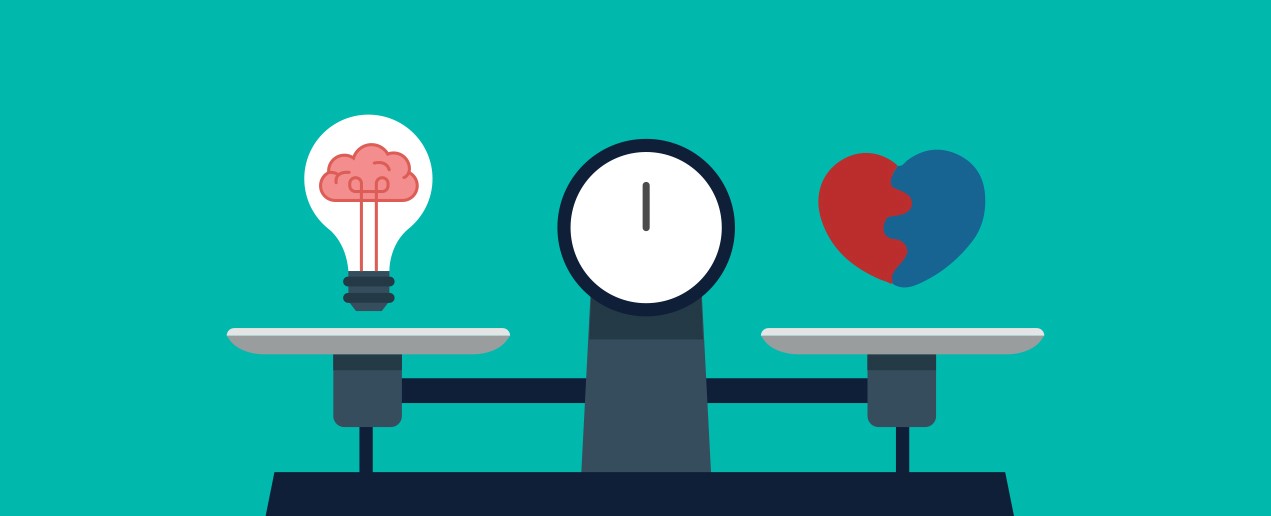
Emotional intelligence is often measured by tests such as:
- the Mayer-Salovey-Caruso Emotional Intelligence Tests
- the Situational Tests of Emotional Management
- the Situational Tests of Emotional Understanding
- the Diagnostic Analysis of Nonverbal Accuracy
These tests sometimes differentiate between your:
- Ability intelligence. How well you solve problems using social and emotional skillsets.
- Trait intelligence. Your self-reported analysis of your own typical behaviors.
Many EQ tests rank your abilities in five areas:
- self-awareness
- self-regulation
- motivation
- empathy
- social skills
Some EQ and IQ tests can only be administered in professional settings and others are commercially available.
Historically, scores on IQ tests have been linked to better academic performance, higher salaries, and better job performance.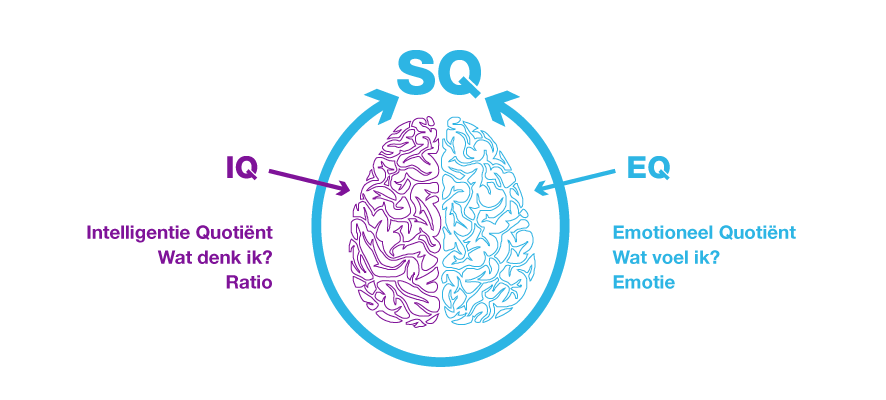 Newer studies have raised questions about those conclusions, though.
Newer studies have raised questions about those conclusions, though.
Emotional intelligence has been linked to job success and more satisfying relationships. There’s also evidence that emotional intelligence may help you handle stress. A 2019 research review concluded that emotional intelligence can help you recover more quickly from acute stress.
Both kinds of intelligence can dramatically affect your quality of life and your accomplishments. Understanding and developing both kinds of intelligence may be your best bet for increasing your odds of success in all areas of your life.
Again, there’s some debate among scientists on this point. Some argue that IQ can be improved. Other researchers say there’s no accurate way to measure whether your basic intelligence has actually improved after an intervention of some kind.
While it’s hard to say exactly how big an impact these steps will have, here are some strategies to consider if you want to boost your EQ and IQ scores.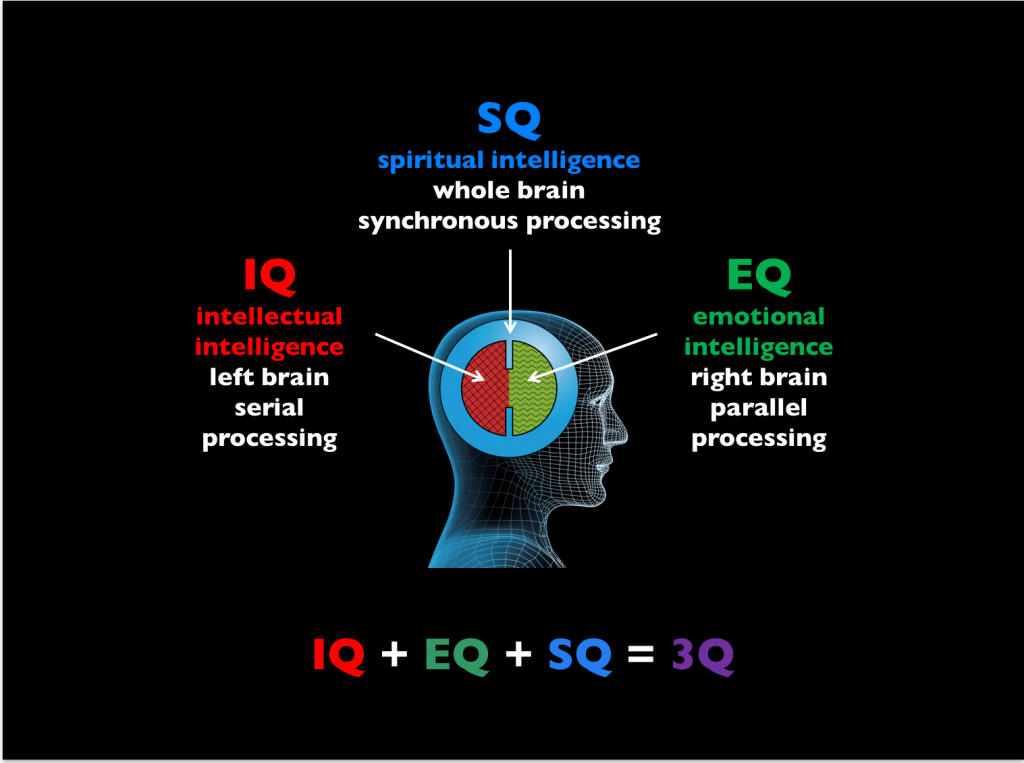
Build your problem-solving skills
Consider working with a coach or taking online courses to boost your problem-solving skills.
In 2019, a group of researchers re-analyzed data from an experimental program conducted in the late 1980s. They found that after students received training in creative problem-solving once a week for 3 years, they gained around 15 points on IQ tests, compared to their scores before the program.
Emory University, Harvard Extension School, and University of Minnesota all offer courses in creative problem-solving.
Or if you prefer to practice on your own, you might consider some reading on the subject. Michael Michalko’s “Thinkertoys” is a popular choice for learning creative thinking techniques.
Try workplace EI training
A number of studies have shown that when co-workers participate in EI-related training programs, it may help improve their:
- teamwork
- conflict management abilities
- job performance
- general job satisfaction
Read
Reading gives you a chance to immerse yourself in the experiences of other people — whether those people really exist or are fictional characters.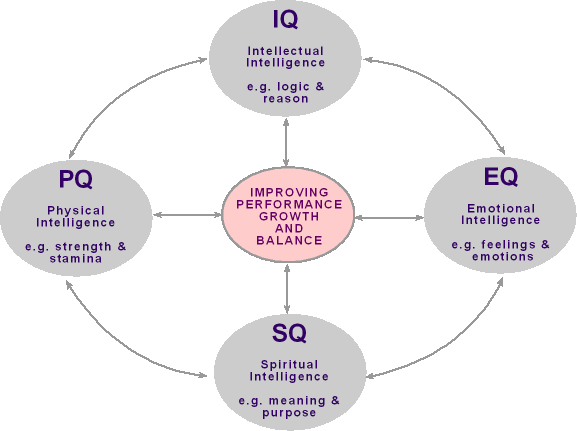
Studies show that reading may help improve your social thinking skills, which researchers think is important for building empathy.
Practice relational framing activities
Researchers have found that when people practice finding relationships between ideas and objects, their scores on measures of general intelligence tend to improve.
Relational framing activities include things like:
- comparing and contrasting images and ideas
- sequencing events into before/after patterns
- analyzing opposites
- finding relationships between unrelated images
In a small 2016 study, students who practiced activities like these had a significant jump in their scores on the Wechsler Intelligence Scale for Children.
While there’s not yet a lot of research that defines or measures these concepts, some researchers think people may have other types of intelligence, including spiritual intelligence (SQ) and physical intelligence (PQ).
What is spiritual intelligence?
Spiritual intelligence often includes an awareness of:
- meaning
- adherence to personal values
- gratitude
- faith or devotion
- commitment to ethics
- expression of compassion
Some studies have shown that spiritual intelligence training may improve health outcomes and job satisfaction in nursing care settings.
What is physical intelligence?
In the groundbreaking 1983 book “Frames of Mind: The Theory of Multiple Intelligences,” Howard Gardner proposed the idea of physical intelligence, or a range of abilities connected to the body.
Physical intelligence is often described as an awareness of:
- posture
- breathing
- strength
- energy levels
- coordination
Gardner’s view is that people with high physical intelligence may learn through movement and physical interactions.
While some educators and psychologists question whether PQ is a separate kind of intelligence, others say there’s some neurological evidence to support the idea.
Intelligence has many factors, some of which are connected to your ability to reason and others to your ability to feel emotion.
IQ tests measure your ability to solve problems, use logic, and grasp or communicate complex ideas. EQ tests measure your ability to recognize emotion in yourself and others, and to use that awareness to guide your decisions.
Both kinds of intelligence can influence your job performance, relationships, and overall well-being. Understanding and developing both kinds of intelligence may be the key to success in many areas of your life.
Difference Between IQ and EQ (With Comparison Chart)
Before elucidating the difference between IQ and EQ, let us first understand, what these terms actually mean. EQ or say Emotional Quotient refers to a person’s ability to understand his/her emotion along with the other person’s emotions, whereas IQ stands for Intelligence Quotient indicates a person’s intelligence level.
Many people hold that IQ is more important for a person to achieve success in life while researchers hold that people with high EQ are more successful in their careers. So, it is one of the hot topics for debates, that which is better than the other.
While IQ is a number that indicates a person reasoning or logical ability in comparison to the statistical norm.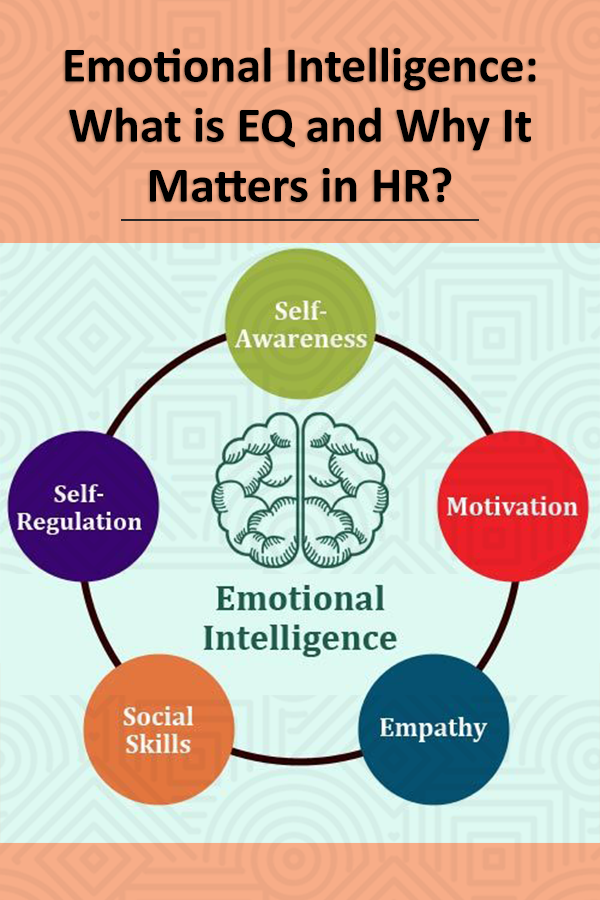 Conversely, EQ implies the level of person’s emptional intelligence. Check out the article below to find some interesting distinguishing points between these two.
Conversely, EQ implies the level of person’s emptional intelligence. Check out the article below to find some interesting distinguishing points between these two.
Content: IQ Vs EQ
- Comparison Chart
- Definition
- Key Differences
- Conclusion
Comparison Chart
| Basis for Comparison | IQ | EQ |
|---|---|---|
| Meaning | Intelligence Quotient or IQ is a number obtained from standardized intelligence test, which represents an individual's ability of logical reasoning. | EQ refers to an individual's level of emotional intelligence, which is represented by scores obtained in a standardized test. |
| Measures | General Intelligence | Emotional Intelligence |
| Acquisition | It is an inborn ability. | It is learned and improved ability. |
| Ability | Learn, understand and implement knowledge, logical reasoning and abstract thinking.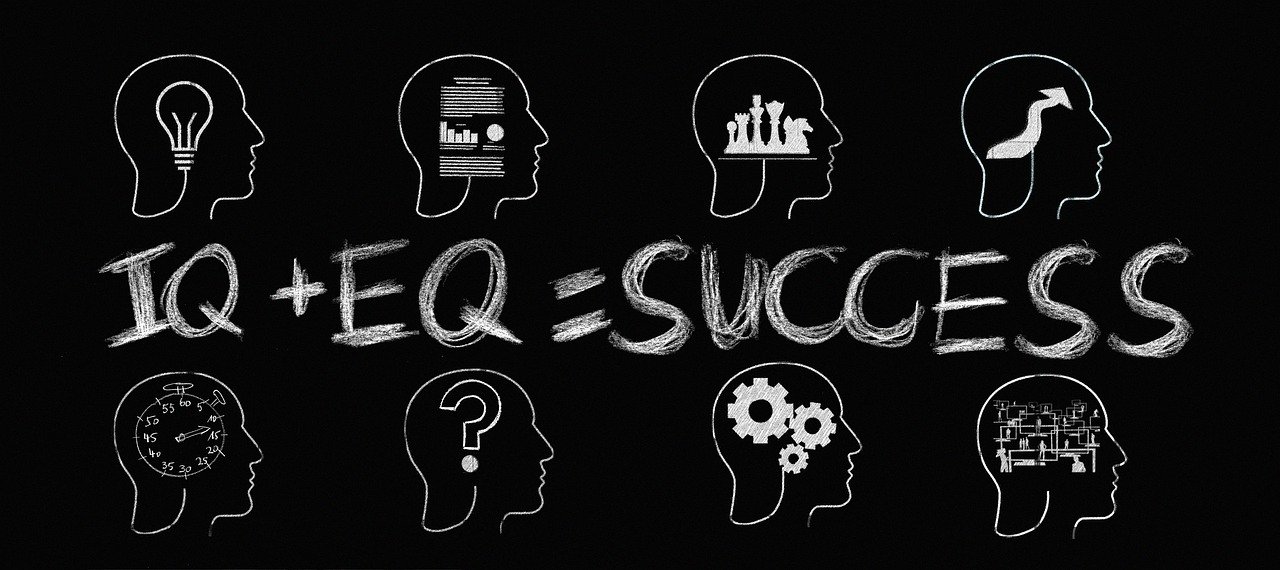 | Recognize, control and express one's own emotion's, perceive and assess other's emotion's. |
| Ensures | Success in school. | Success in life. |
| Recognizes | People with high intellect, common sense, mental challenges, etc. | Leaders, Captains, Managers and people with social challenges. |
Definition of IQ
Intelligence Quotient, shortly known as IQ is an intelligent test score, obtained by a standardised intelligence test in which an individual’s mental age is divided by his chronological age and then multiplied by 100. The test aims at assessing a person’s cognitive capacity of thinking and reasoning. The term was first introduced by William Stern.
IQ is a measure of the intelligence level of an individual, that is reflected in the score obtained by the person in the intelligence test as compared to the scores received by other people of the same age in the same test.
Definition of EQ
EQ is an abbreviation for the term Emotional Quotient, which is defined as a person’s capability of identifying his own and other’s person’s emotions. It is a measure of the emotional intelligence level of an individual, which demarcates between different feelings and use this intelligence to guide thinking and behaviour.
It is a measure of the emotional intelligence level of an individual, which demarcates between different feelings and use this intelligence to guide thinking and behaviour.
The term was first evolved in 1995, by Daniel Goleman a psychologist in his book on Emotional Intelligence. It is the ability of a person to identify, express and control his/her thoughts and actions, understand other people and rightly interpret their situations, make right and quick decisions, cope with pressures and crisis and so on. It has been researched that people with high EQ have better mental health, job performance, the way of living life.
Key Differences Between IQ and EQ
The major differences between IQ and EQ are explained in detail in the following points:
- An individual’s level of emotional intelligence, which is represented by scores obtained in the standardized test, is called Emotional Quotient or EQ. Intelligence Quotient or IQ is a number obtained from standardised intelligence test, which represents an individual’s ability of logical reasoning.

- A person’s success in school depends on his IQ level, whereas a person’s EQ level reflects his success in real life.
- EQ measures an individual’s social and emotional competencies or one’s ability to recognise one’s own and other person’s emotional expression. Conversely, IQ measures a person’s academic competency and reasoning ability.
- Emotional Quotient is acquired and improved. As opposed to intelligence quotient is an ability you are born with.
- A person with good EQ can recognise, control and express one’s own emotion’s, perceive and assess other’s emotions. On the contrary, a person with a high IQ can learn, understand and implement knowledge, and possesses logical reasoning and abstract thinking.
- High emotional intelligence can be seen in leaders, captains, managers and people with social challenges. Unlike, Intelligence quotient identifies people with high intellect, common sense, mental challenges, etc.
Conclusion
The IQ and EQ level are different in different persons. It is possible that a person has a high IQ level, but low EQ count and vice versa. Therefore, the methods of checking IQ and EQ also differs.
It is possible that a person has a high IQ level, but low EQ count and vice versa. Therefore, the methods of checking IQ and EQ also differs.
Your IQ is what determines your competencies and individual capacities, but your EQ determines how you interact and treat people in your life, it shows how you are going to cope with pressures or face the crisis. The difference between these two is that no one can alter his/her intelligence or reasoning abilities, but anyone can learn to handle emotions, to bring success for him.
What is IQ: how do IQ tests pass and what do their results mean
Only 2% of the world's population has an IQ above 132. We tell you what this indicator means and how it affects learning, career and life success
IQ, IQ (English intelligence quotient), or intelligence quotient is an indicator of a person's intelligence, which can be measured using special psychological tests. Psychologists talk about an average IQ, as well as an IQ above or below normal.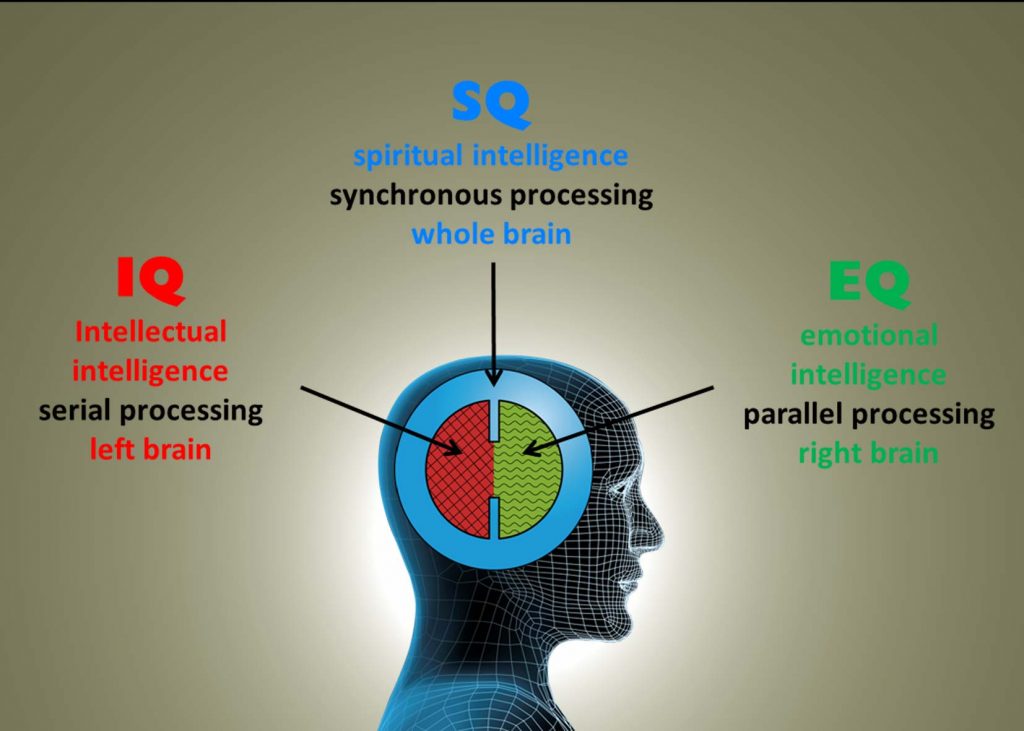 The term IQ in the ordinary and psychological sense can be replaced by the synonyms of "cognitive abilities", "mental abilities" or "intelligence".
The term IQ in the ordinary and psychological sense can be replaced by the synonyms of "cognitive abilities", "mental abilities" or "intelligence".
IQ tests are designed so that the results can be described using a normal distribution scale. The average IQ is considered to be 100, with a deviation of plus or minus 15. This means that if you measure the IQ of a large group of people, most will score between 85 and 115 points.
All IQ scores fall on this normal distribution scale (Photo: Wikipedia)
IQ tests do not assess the level of knowledge, erudition or, for example, creativity. They were designed to measure what is known as general intelligence, various aspects of intelligence: verbal, analytical, logical, visual-spatial, and working memory.
In 1904, the British psychologist Charles Spearman noticed that different cognitive abilities are closely related to each other. In other words, if you have a good memory, then most likely you are good at reasoning logically. Spearman suggested that there was a "general intelligence" and that it could be measured. This measured indicator - the factor of general intelligence (general intelligence factor) he denoted by the letter g.
In other words, if you have a good memory, then most likely you are good at reasoning logically. Spearman suggested that there was a "general intelligence" and that it could be measured. This measured indicator - the factor of general intelligence (general intelligence factor) he denoted by the letter g.
On the basis of Spearman's theory, psychologists began to come up with methods for measuring the g factor: tests, questionnaires, tasks for different age groups. By measuring general intelligence with tests, scientists study the relationship between it and, for example, the amount of white matter in the brain, race, gender, heredity, success rates and socially negative phenomena.
What tests measure IQ
IQ tests or tests to determine the level of intelligence is the general name of tests created in different years to measure the intelligence of different groups of people. There is no single standard and universal IQ test.
Stanford-Binet
This is one of the best known IQ tests for children.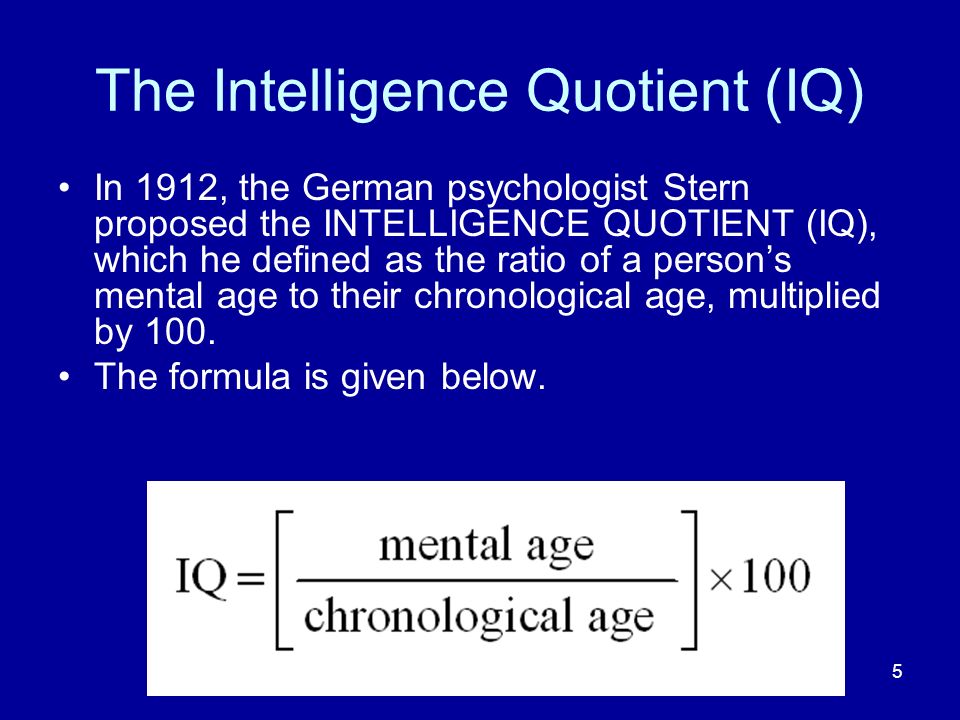 In the early 1900s, French psychologists Alfred Binet and Théodore Simon developed an intelligence measurement scale to separate gifted children from those who needed help and support in learning. Subsequently, the Binet test was finalized by Stanford University professor Lewis Terman, and the new version was called the Stanford-Binet intelligence scale.
In the early 1900s, French psychologists Alfred Binet and Théodore Simon developed an intelligence measurement scale to separate gifted children from those who needed help and support in learning. Subsequently, the Binet test was finalized by Stanford University professor Lewis Terman, and the new version was called the Stanford-Binet intelligence scale.
The test assessed the intelligence of the child according to 5 parameters:
- mobile intelligence - the ability of a person to analyze and solve problems regardless of accumulated experience;
- verbal intelligence and general knowledge;
- mathematical thinking;
- visual-spatial intelligence;
- working memory.
The tasks were verbal and non-verbal.
The test is now in its 5th edition and is used in the US and Europe in clinics, continuing education centers or schools for children with learning difficulties. In Russia, the Stanford-Binet test also evaluates the mental development of children.
In Russia, the Stanford-Binet test also evaluates the mental development of children.
Wechsler test
American psychologist David Wechsler proposed in 1939 a series of tests to measure intelligence. Initially, the test was used for clinical purposes and only for adults. It was later adapted for children. Subsequently, both scales were refined.
Wechsler's test consists of two parts:
- verbal tasks - solve arithmetic problems, repeat numbers, answer general questions;
- non-verbal tasks - lay out the cubes, lay out the pictures, connect the puzzles.
The difficulty increases from task to task. The test tests logical and verbal thinking, visual-spatial intelligence.
The Wechsler test is actively used in Russia: to determine mental retardation in children and adults, in the diagnosis of developmental delay, autism in a child.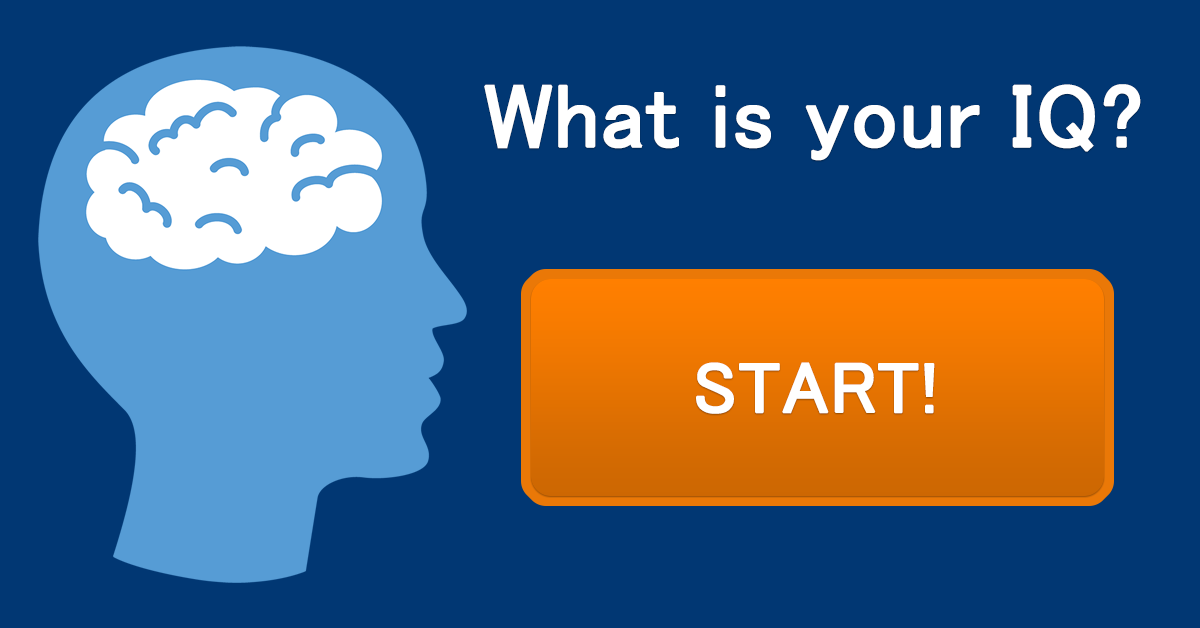 Its results are used for medical diagnostics, the test is mandatory within any official commissions: PMPK (Psychological-Medical-Pedagogical Commission) or ITU (Medical-Social Expertise) and others. It is conducted by clinical and medical psychologists.
Its results are used for medical diagnostics, the test is mandatory within any official commissions: PMPK (Psychological-Medical-Pedagogical Commission) or ITU (Medical-Social Expertise) and others. It is conducted by clinical and medical psychologists.
Eysenck test
This intelligence test was created by the British psychologist Hans Eysenck. There are about a dozen of his options, several of them are combined in the "combined Eysenck IQ test" of 40 questions. Test with verbal and non-verbal tasks measures mathematical thinking, verbal and visual intelligence.
Task from the Eysenck test: select the desired figure from the numbered (Photo: psytest24.ru)
The Eysenck test is widely used in Russia, but in the English-speaking world it is almost never used to measure intelligence. The Wexler test is considered more reliable and correct in the West.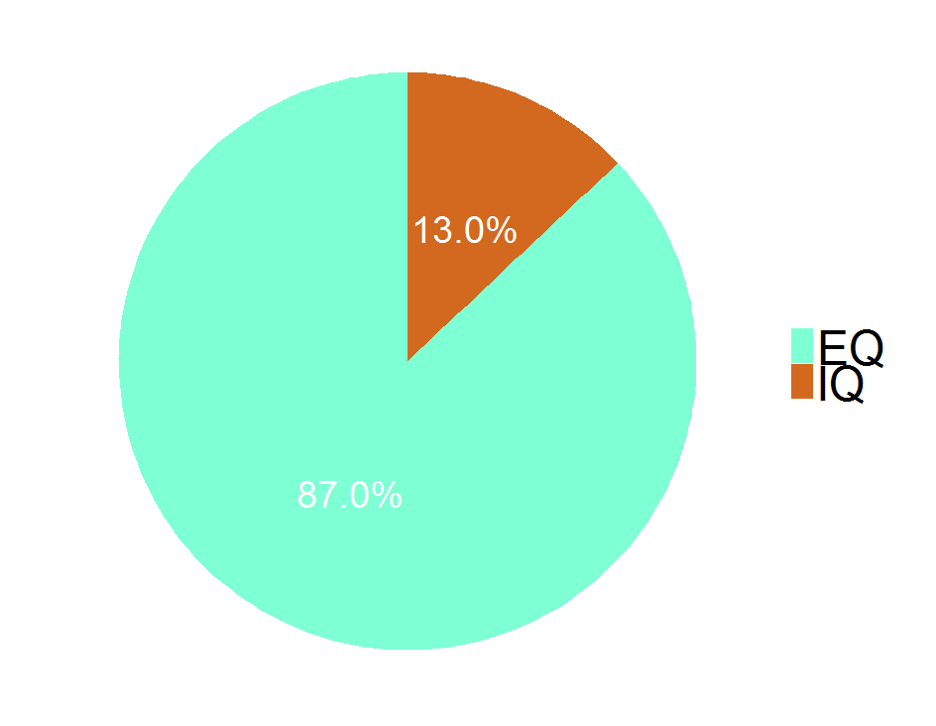 In 2019, investigations were carried out regarding the scientific activities of Hans Eysenck, many of his works were recognized as "raising big questions." Perhaps for this reason, the Eysenck test is not mentioned among modern IQ tests in the English-language Wikipedia.
In 2019, investigations were carried out regarding the scientific activities of Hans Eysenck, many of his works were recognized as "raising big questions." Perhaps for this reason, the Eysenck test is not mentioned among modern IQ tests in the English-language Wikipedia.
Raven's Test or Raven's Progressive Matrices
This is a non-verbal test consisting of 60 task pictures called "matrices". In each task, you need to choose the missing element that will complement the picture. The difficulty of the questions increases as you progress.
One of the items in the Raven test (Photo: 123ru.net)
The test was offered at 1936 by British psychologist John Raven, it measures general intelligence, including abstract thinking and a person's ability to analyze and solve problems regardless of accumulated experience. Due to the ease of use and interpretation of the results, as well as the lack of verbal tasks, the test quickly spread and began to be used to diagnose mental intelligence in US Army recruits, university students and schoolchildren.
School mental development test STUR
This test was developed by a group of Russian psychologists specifically to diagnose the mental development of students in grades 7-9. It consists of 6 parts, each contains the same type of questions on general knowledge and erudition, on the ability to establish analogies, reason logically, and find patterns in a number series. The test is based on the material of the school curriculum. The results are calculated not only for each student, but also compared with the general level in the class.
An example of a task from the Shtur (Photo: defectologiya.pro)
It seems that it is impossible to call the SIT as an intelligence test in its purest form: it measures how much the level of mental development of one student matches the general level in the group and whether the child has problems mastering the school curriculum.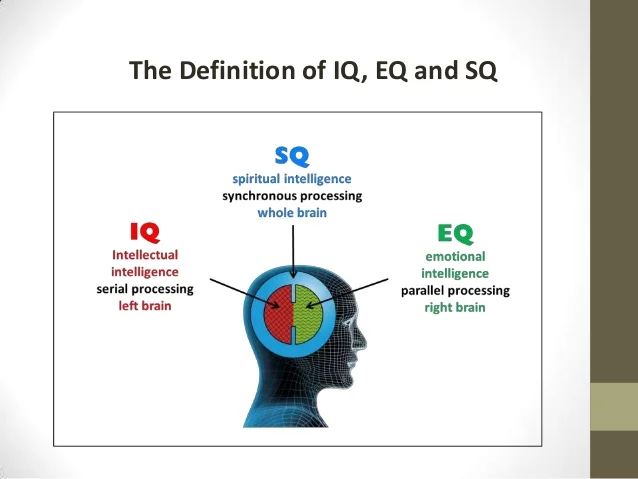
Galina Andreeva, clinical psychologist, RANEPA postgraduate student:
“The tradition of measuring and studying intelligence is a Western tradition, domestic psychology developed tests for diagnosing thinking. In Russia, the most common intelligence tests are the Wexler test, the Raven matrix, the Eysenck-Gorbov test.”
How and why IQ tests are used
To determine the level of intelligence in society, including by country
.: IQ and the Wealth of Nations). It provides average IQ data for 81 countries. There are many interesting and controversial conclusions in the book, one of them is that in countries with colder climates, average IQ values are maximum. The book has been widely criticized for its methodology and flawed data collection, but that doesn't stop Richard Lynn from doing new IQ studies by country: according to a 2019 reportyear, the highest average IQs in the world belong to the Japanese, residents of Taiwan and Singapore.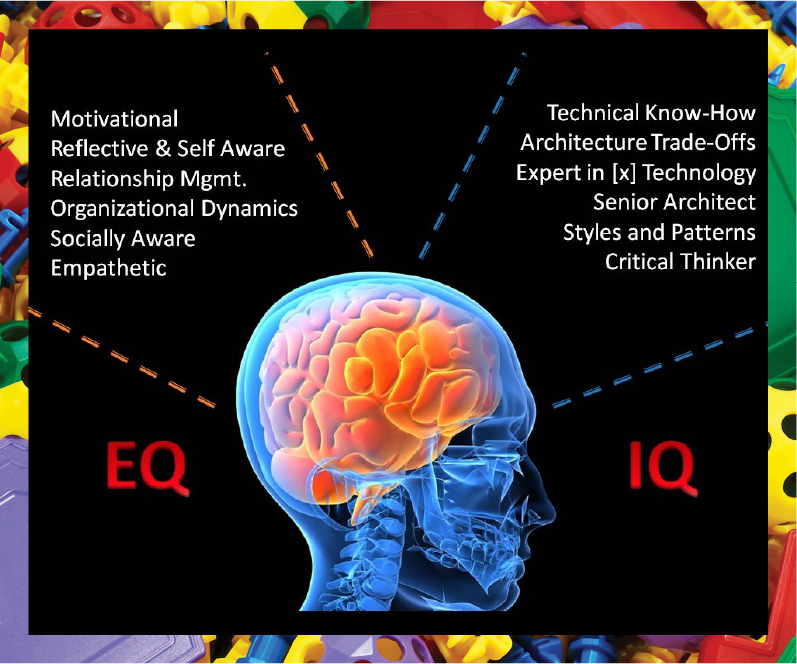
Distribution map of the average IQ of countries (Photo: Wikipedia)
Measuring student intelligence
Many intelligence tests are specifically designed to assess students' abilities, predict how they will perform in a curriculum, and help them adapt as needed.
For example, the Stanford-Binet test is used in Western countries to assign children to different types of schools. With the help of the STUR test, Russian psychologists evaluate how well children cope with the school curriculum, what they learn better, what worse. An assessment of verbal, mathematical and critical thinking is also included in the standardized GRE (Graduate Record Examinations) exam, which everyone entering the graduate and graduate programs of an American university must pass.
To assess candidates for employment
Various tests close to IQ tests are often used when applying for jobs in large auditing, consulting, law firms and investment banks. For example, consulting company Deloitte, one of the "Big Four Auditors", selects candidates using special assessment tests. They test verbal intelligence, mathematical and analytical skills, "situational" thinking.
For example, consulting company Deloitte, one of the "Big Four Auditors", selects candidates using special assessment tests. They test verbal intelligence, mathematical and analytical skills, "situational" thinking.
Deloitte logical thinking task (Photo: hrlider.ru)
One of the most famous critical thinking tests, the Watson-Glazer test, is over 85 years old. It is used by British and American law firms when selecting internship candidates. It tests logical thinking and fluid intelligence.
In Russia, such tests can be encountered when applying to large insurance, auditing and legal companies.
Self-test
People often decide to test their IQ on their own. The reasons can range from pure curiosity to suspicions that their cognitive abilities have declined.
Galina Andreeva:
“Sometimes adults feel distracted, forgetful, tired and want to test their intelligence. Parents often want to test their child's intelligence if they suspect a decline. This can be done privately in many children's psychological centers, as well as in neuropsychological centers or with a private psychologist.
Parents often want to test their child's intelligence if they suspect a decline. This can be done privately in many children's psychological centers, as well as in neuropsychological centers or with a private psychologist.
The problem with intelligence diagnostics is that people learn part of the test in advance on the Internet. Of course, a psychologist easily calculates trained people, but he can no longer use the IQ test, which means that other methods have to be used, for example, methods of pathopsychological examination. These techniques are good, but they are not quantitative; they don't end up with a numerical IQ result."
Internet tests will most likely not be able to determine your IQ. To get a reliable result, you will need a specialist psychologist, because slowness, excitement, or minor changes in the wording of tasks affect the assessment.
Is a high IQ score related to success? may differ slightly. This is due to both errors and different tasks of the tests themselves.
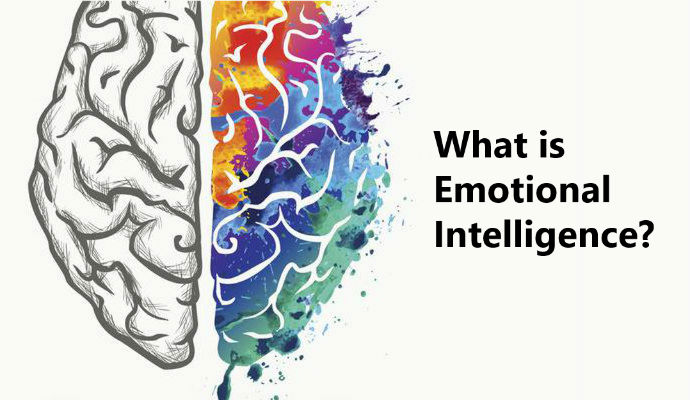
Levels of intelligence development according to Veksler. Illustration from Vladimir Druzhinin's book "The Psychology of General Abilities"
Galina Andreeva:
“The test standards that are now used in Russia are rather soft, i.e. An IQ in the range of 90 to 109 is, frankly, an average result. It means that you solved the test as well as half of the people your age. If a child develops well and parents pay attention to his additional activities, then it is natural to expect that he can show results above 110 on an IQ test.
High IQ is, of course, nice. IQ results are directly correlated with school performance, but high intelligence alone does not guarantee indispensable success in life. Success has more to do with social skills, achievement motivation, the ability to arbitrarily set goals, take risks and, in general, be an active person.”
Neuropsychologists believe that a high IQ score has a positive effect on professional performance, social mobility, and the quality of work performed. With decision-making in everyday life, people with high intelligence also cope more successfully.
With decision-making in everyday life, people with high intelligence also cope more successfully.
People who have high IQ scores in childhood and adolescence are in good health later in life and are less likely to die young. Researchers followed 1 million men for about 20 years after taking intelligence tests. The mortality of men with relatively high intelligence was 32% lower than that of men with low intelligence.
People with a high IQ
Now among the smartest people on the planet with an IQ of over 200 are American astrophysicist Christopher Hirata, Australian mathematician Terence Tao, and American journalist Marilyn vos Savant, who, since 1985 to 1989 was listed in the Guinness Book of Records in the category "Highest IQ". Guinness subsequently dropped the category, stating that intelligence tests were too unreliable to determine a single record holder. Moreover, the test, which showed a very high score for Marilyn vos Savant, was criticized by psychologists over time.
It is sometimes said that Einstein's IQ was either very high or very low. But there is no documentary evidence that it was ever tested at all. Early 19In the 00s, when Einstein became a scientific luminary, IQ tests were just in their infancy.
Galina Andreeva:
“If parents suspect that their child has some kind of giftedness, then you can check the abilities of a child over 11 years old on Raven's Advanced Progressive Matrices. They are used to diagnose children in special schools with a complicated program.
In my opinion, learning a foreign language is the best way to "pump" intellectual abilities - this is a generally recognized trend that really works for both children and adults. Only you need to study not in the application on the phone, but at least in online courses - at a more dynamic pace.
What is IQ and how does it affect our lives?
IQ tests are carried out in companies and schools, these two letters are widely heard. But not everyone understands what this indicator means: what it depends on and how it affects learning and career success. Informburo.kz explains why our life depends on this figure.
But not everyone understands what this indicator means: what it depends on and how it affects learning and career success. Informburo.kz explains why our life depends on this figure.
What is IQ?
IQ (intelligence quotient, intelligence quotient) - a quantitative indicator of the level of intelligence in comparison with the level of the average person. The average person is considered to be the same age and development as the one for whom this coefficient is measured. It turns out that IQ does not show the level of intelligence itself, but its compliance or deviation from the norm, i.e. middle level.
Average IQ can be compared to average height. For example, according to studies in Kazakhstan, the average height of women is 164.4 cm, men - 177.5 cm. We compare the height of a person with the average and give an assessment: if the height exceeds the average, then we consider the person to be tall, and vice versa. It is important to understand that this average level is not constant, but depends on various factors. With the definition of the IQ level, the situation is approximately the same.
With the definition of the IQ level, the situation is approximately the same.
How are IQ tests designed and what results are considered normal?
There are no uniform standards for the development of tests for determining IQ, but all tests are divided into age categories. Therefore, the same IQ for a child and a student does not mean that the student is stupid and the child is smart. After all, they have different age categories of tests.
The authors of the tests also write instructions for them, which explain how to take them. These instructions are needed to minimize error. The tests include tasks for reasoning, memory, logic, acquired knowledge. The average score is considered equal to 100: tests are designed in such a way that the majority of results correspond to this indicator. The results of the test subjects are then compared with this average result.
It turns out that the average IQ test score is the level of most people.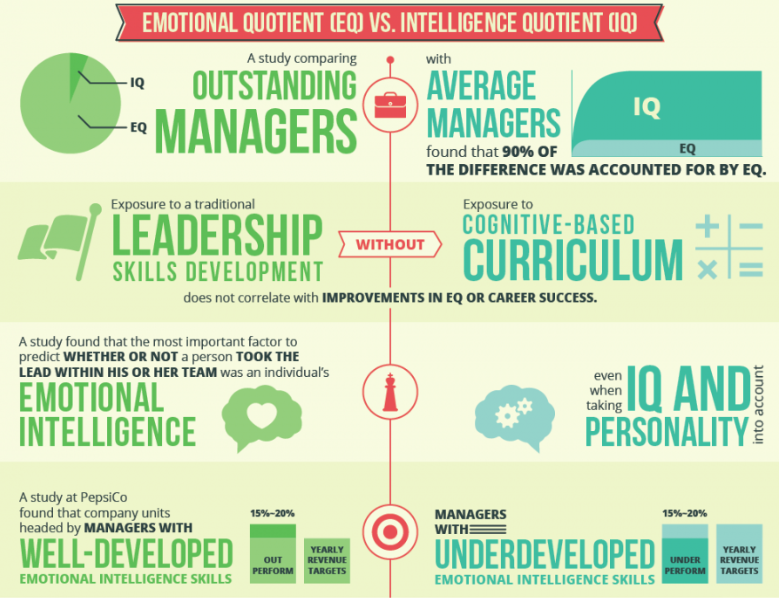 Therefore, the average level of intelligence is just normal. There are deviations from the average in the results, because many reasons can affect this: excitement, fatigue, haste. Only results less than 70 points can be considered a sign of mental retardation. A high level of intelligence with a score above 130 occurs in 2.2% of people - such data are given by researcher Stuart Ritchie in his book "Intelligence: Everything that Matters". At the same time, 68.2% of those tested correspond to the average level.
Therefore, the average level of intelligence is just normal. There are deviations from the average in the results, because many reasons can affect this: excitement, fatigue, haste. Only results less than 70 points can be considered a sign of mental retardation. A high level of intelligence with a score above 130 occurs in 2.2% of people - such data are given by researcher Stuart Ritchie in his book "Intelligence: Everything that Matters". At the same time, 68.2% of those tested correspond to the average level.
Source: Intelligence: All that Matters
What determines our level of intelligence?
Intelligence is the ability to learn and solve problems. Intelligence includes human cognitive abilities: sensation, perception, memory, representation, thinking, imagination.
Mankind cannot unambiguously say what the intellect depends on. For example, we know for sure that thinking is a function of the brain.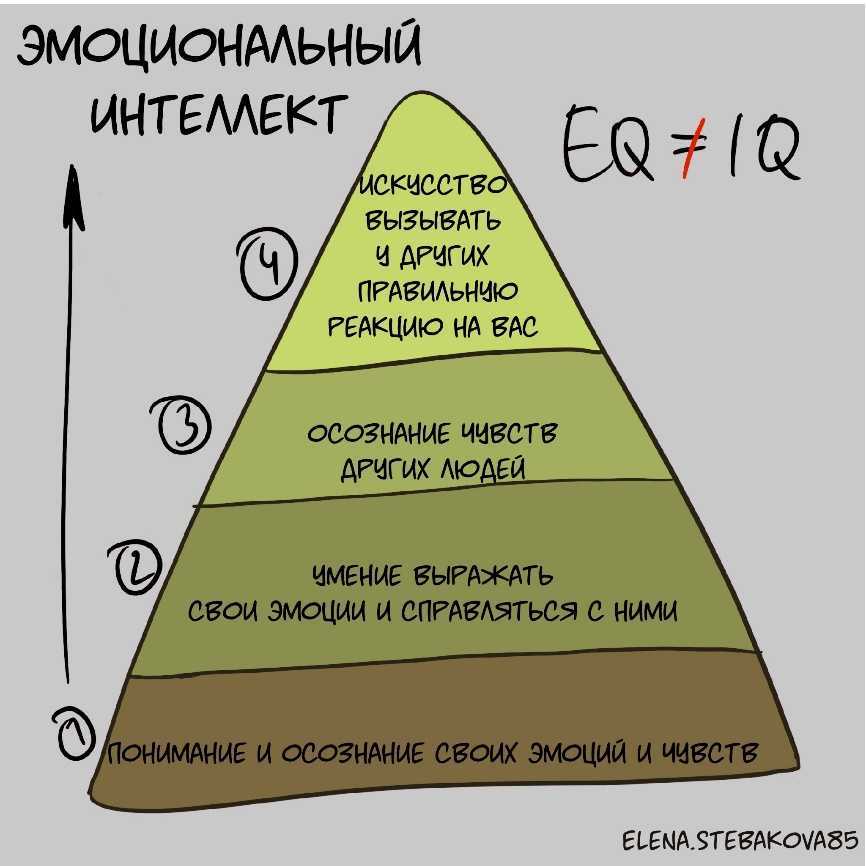 It can be assumed that intelligence depends on some characteristics of the brain and nervous system: the volume and relief of the brain, the amount of gray matter, the speed of nerve impulses. Moreover, it is more likely that combinations of different characteristics influence. If we consider each characteristic separately, then it is impossible to reveal its influence on intelligence. For example, the brain size of women is on average smaller than that of men. But on IQ tests, women on average score the same as men. This fact also suggests that intelligence does not depend on biological sex.
It can be assumed that intelligence depends on some characteristics of the brain and nervous system: the volume and relief of the brain, the amount of gray matter, the speed of nerve impulses. Moreover, it is more likely that combinations of different characteristics influence. If we consider each characteristic separately, then it is impossible to reveal its influence on intelligence. For example, the brain size of women is on average smaller than that of men. But on IQ tests, women on average score the same as men. This fact also suggests that intelligence does not depend on biological sex.
Scientists have also not established the influence on the intelligence of race or nationality. Ushakov in the book "The Psychology of Intelligence and Giftedness" cites the following data: black orphans raised in foster families with access to better education have higher IQs. It is likely that intelligence in this case was more influenced by social factors than hereditary ones. This is confirmed by studies of twins with an identical set of genes, which Steward Richie cites. While twins are children, their IQ level is approximately equal, and this can be explained by genetics. As children grow older, they begin to create an environment for themselves: someone spends time reading books and other activities, someone wanders around idle. Then, with the same heredity, the level of IQ ceases to be equal. It turns out that with age we have more control over our environment. And the environments we create affect IQ levels.
This is confirmed by studies of twins with an identical set of genes, which Steward Richie cites. While twins are children, their IQ level is approximately equal, and this can be explained by genetics. As children grow older, they begin to create an environment for themselves: someone spends time reading books and other activities, someone wanders around idle. Then, with the same heredity, the level of IQ ceases to be equal. It turns out that with age we have more control over our environment. And the environments we create affect IQ levels.
Other facts speak about the influence of external factors on the intellect. The average IQ is higher in countries with a high standard of living. The quality of food and medical care, the availability of education, crime rates and social attitudes in society can also affect IQ levels.
Surprisingly, the average level of IQ is gradually growing both in the world and in individual countries. This process is called the Flynn effect, after the scientist who collected the data on these changes. The Flynn effect is paradoxical: the average IQ rises every 10 years. For genetic and evolutionary changes, this is too short a period of time. In addition, these data do not allow a strong connection of intelligence with heredity, race, nationality, gender, and brain characteristics. It turns out that people become "smarter" for various reasons, and the level of intelligence does not depend on anything specific.
The Flynn effect is paradoxical: the average IQ rises every 10 years. For genetic and evolutionary changes, this is too short a period of time. In addition, these data do not allow a strong connection of intelligence with heredity, race, nationality, gender, and brain characteristics. It turns out that people become "smarter" for various reasons, and the level of intelligence does not depend on anything specific.
How average IQ has changed over time / Source: Intelligence: All that Matters
What influences the level of IQ?
Theoretically, it can be assumed that the level of intelligence affects learning, career success and, indirectly, income.
Steward Richie says that there is a slight addiction. People with higher intelligence improve their skills faster and more willingly, become professionals more often, as a result, they have higher income. But this dependence is not perfect: high IQ does not guarantee success if a person does not make an effort.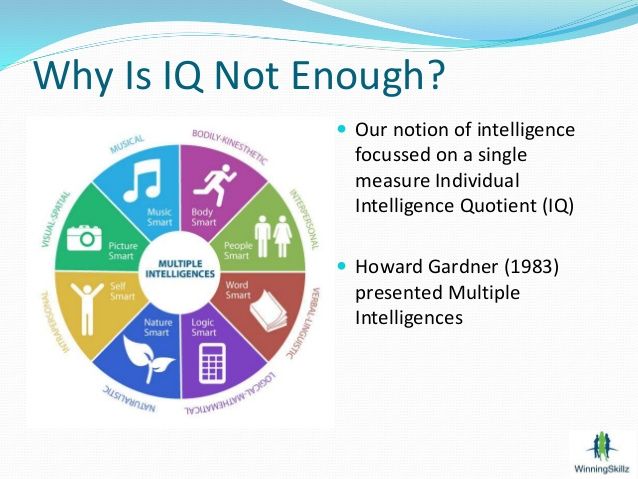 In addition, personal qualities are also important: responsibility, activity, attentiveness. Each field of activity has its own set of important qualities. It turns out that the level of intelligence affects learning and career growth, but they do not depend only on it.
In addition, personal qualities are also important: responsibility, activity, attentiveness. Each field of activity has its own set of important qualities. It turns out that the level of intelligence affects learning and career growth, but they do not depend only on it.
Steward Ritchie revealed another interesting pattern: people with high IQs live longer. Their risk of death is three times lower compared to those with a low level of intelligence. It is difficult to explain this dependence, but two theories look more reliable. The first is that people with a high level of intelligence have higher incomes. This allows them to eat right, receive quality health care, maintain the right weight and level of physical activity. The second is that they analyze faster and better, so they avoid dangerous situations. And if they fall into them, they often survive, because they act more rationally.
Why measure IQ?
The level of IQ does not determine our life, does not guarantee a certain future.

